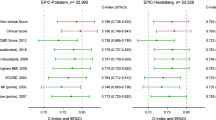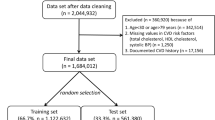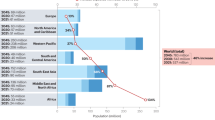Abstract
One of the most important challenges facing modern preventative medicine is the problem of how best to identify and treat those at highest risk of developing cardiovascular disease, for whom appropriate management (ranging from lifestyle modification to therapeutic regimens) can improve both duration and quality of life. The use of risk assessment can contribute greatly to identifying those individuals who will benefit from risk-reducing interventions. However, assessment tools must always be used with care because some are not sufficiently accurate, while most systems are subject to an ageist bias because they do not take into account the benefits of long-term treatment or risk. Nonetheless, assessment techniques can provide a more logical approach to patient management, predict short-term benefits, and provide accurate data to substantiate a physician’s clinical judgement.
This is a preview of subscription content, access via your institution
Access options
Subscribe to this journal
Receive 12 digital issues and online access to articles
$119.00 per year
only $9.92 per issue
Buy this article
- Purchase on Springer Link
- Instant access to full article PDF
Prices may be subject to local taxes which are calculated during checkout
Similar content being viewed by others
Author information
Authors and Affiliations
Rights and permissions
About this article
Cite this article
Poulter, N. Benefits and pitfalls of cardiovascular risk assessment. J Hum Hypertens 14 (Suppl 2), S11–S16 (2000). https://doi.org/10.1038/sj.jhh.1001071
Published:
Issue Date:
DOI: https://doi.org/10.1038/sj.jhh.1001071



